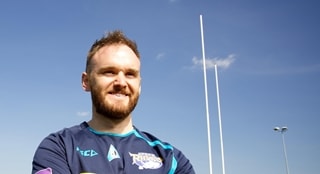Leeds Beckett University - City Campus,
Woodhouse Lane,
LS1 3HE
An intersectional approach to how self-identifying women experience and disrupt power in rugby leadership roles
As is so often the case, my time at secondary school did not facilitate in-depth learning of Black History outside of the study of the US Civil Rights Movement led by Dr. Martin Luther King. Limited in scope to the years 1954-1986, Black History remained periodised, restricted to a few short years and focused on the study of legal change.

It wasn’t until higher education studying History at the University of Cambridge where I was introduced to the depth and wealth of Black History and its pivotal influence on every sphere of contemporary life, including sport. An introduction to Black Feminism and Black Queer History through the books of academics such as Professor Saidiya Hartman demonstrated the powerful narratives that are so frequently lost in the archive as minority voices are overshadowed by white, male figures (Hartman, 2020).
Discovering the work of Black, lesbian, feminist, poet, activist, Audre Lorde fuelled the development of my PhD project, which combines my love of Rugby Union, personal involvement in sports volunteering and a desire to make a genuine difference to the experiences of women in grassroots rugby settings. Systemic racism and sexism neglects to celebrate and champion the contributions of women, particularly those whose identity consists of a myriad of intersections. In 1984, Audre Lorde demonstrated the need for feminist women to embrace the power of difference in order to enact lasting change in a world dominated by the white, patriarchal, heterosexual elite. My research will address how multiple intersections of difference influence self-identifying women’s experiences of leadership roles in Rugby Union, with the aim of developing a feminist-queer, evidence informed tool to better enable women to disrupt existing power dynamics. The patriarchal structures of sporting institutions are framed using Lorde’s depiction of the ‘masters house’. It is a metaphor that can extend to both the individual sites of sporting activity where patriarchy dominates, and the reproduction of gendered identities which become attached to institutionalised performative spaces such as rugby clubs (Connell, 1995; Campenhout & Hoven, 2014).
I hope through the use of innovative, creative methodologies to harness the voices of those women who are most marginalised and are often left outside of both academic research and leadership roles within sports organisations. My research will aim to contribute to the wider aspirations of the Carnegie School of Sport and the Research Centre of Social Justice in Sport and Society, identifying the root cause of injustice within rugby volunteering with the purpose of achieving social change.






